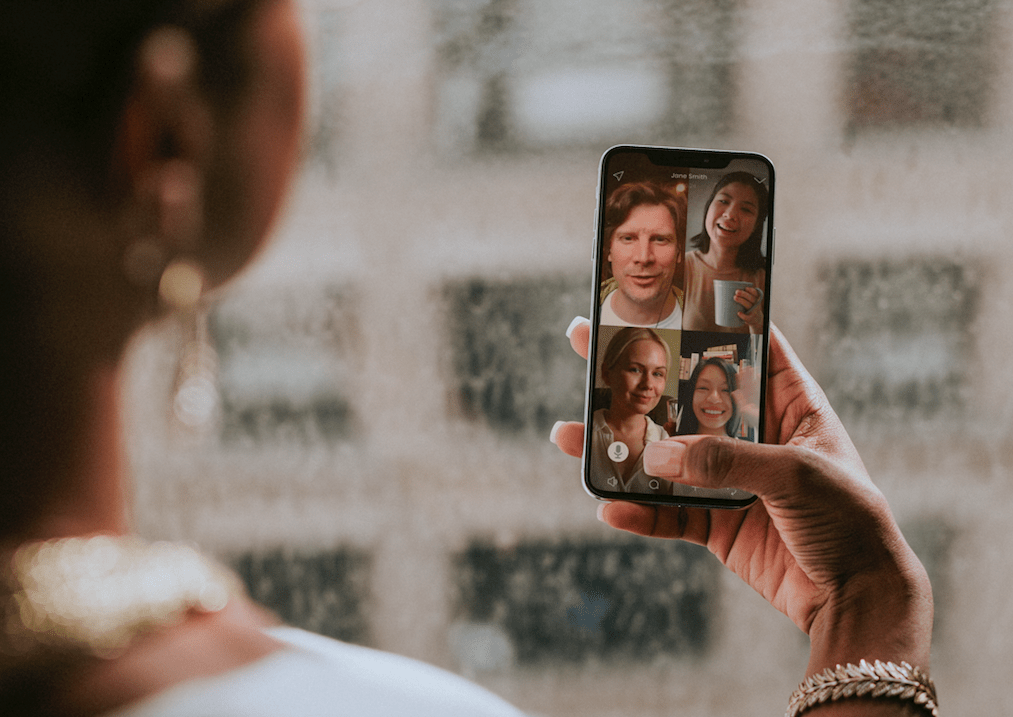With Covid-19 already hitting its second wave, we’re getting more and more used to social distancing (or distance socializing). But just because we may be stuck at home doesn’t mean we can’t make friends.
Here are some tips.
1. Reconnect with old friends:
When people ask me how to make friends, my first suggestion is to reconnect with old friends. Why? Research finds that when we reconnect with past friends, we have a higher level of trust with them than we do current acquaintances. Our shared memories and knowledge of one another supercharges our friendship potential.
Plus, most of us lose friends not because there were some insurmountable incompatibilities in the friendship, but because we got busy. Now’s the time to reconnect with friends you’ve fallen out of touch with who you wish you hadn’t.
This looks like: Hey! It’s been a while since we talked and I’ve been wondering how you are. What’s new with you? Take it from there, and if they’re responsive, suggest a time to catch-up.
2. Connect digitally:
There are tons of ways to connect online. There are apps, like Bumble BFF, or Friender to meet people. Meetup.com has a variety of virtual events. You can join a Facebook group, post regularly, and ask if anyone is open to a virtual chat. People even connect with strangers through Instagram or Twitter. After commenting on someone’s posts over time, eventually, start direct messaging them to develop a more meaningful connection.
This looks like: Hey! I’ve been such a fan of all the things you post. It seems like we have [insert thing] in common. I was wondering if you’d be open to connecting further over a virtual chat.
3. Turn acquaintances into friends:
We all have some people swirling in our lives who we’d love to get to know a bit better. It could be someone from your old book club or biking group or a friend of a friend you met at a gathering. You can turn these acquaintances into friends by taking the initiative to reach out and ask them to meet up one-on-one.
This looks like: Hey! It’s been a while since we had a chance to connect. I’ve been meaning to reach out and see if you’d be open to hanging out sometime.
4. Become friends with people you already see regularly:
When we become friends with people we see regularly (like our neighbors or our co-workers), we capitalize on something called the mere exposure effect, which describes our tendency to like people the more familiar they are to us. One study involved planting strangers in a large lecture course for varying numbers of classes. At the end of the semester, the researchers asked the students who they liked best amongst the strangers. It turns out they preferred the strangers who showed up for the most classes. This was true even though the students didn’t remember any of the strangers AND didn’t interact with any of them during the class.
Because of the mere exposure effect, we already have some friendship traction when we try to build relationships with people we see regularly.
This looks like Hey! I know we’ve been working together for a while and I’ve been meaning to find some time for us to get to know each other more. Do you want to set aside some time for a virtual coffee?
5. Tell friends or family to put you in touch with someone you might get along with:
When friends put us in touch with their friends, they pre-vet our connections. Research also finds that when we’re friends with our friend’s friends, we’re less likely to be lonely. This may be because now, every time our friend and their friend spend time together, they’ll consider inviting us to join. It’s a win-win all around.
This looks like Hey! I’ve been wanting to connect with some new people. Do you know anyone who you think I’d get along with who you’d be willing to connect me to?
The common thread here is to make friends while you’re stuck at home, take initiative. It’ll pay off. One study found that the more people thought that making friends takes effort, the less lonely they were years later, and other research finds that the more we take initiative, the happier we are with our social circle. I know it can be scary to reach out, especially when we fear rejection, but studies find that we overestimate our likelihood of being rejected. It’s not as scary as it seems.
When you’re stuck at home all day, it’s easy to get lonely, but you don’t have to be. Just reach out.
For more on friendship, order my book (debuts September 6th, 2022): Platonic: How the Science of Attachment Can Help You Make- and Keep -Friends.
Note: This article is cross-posted on my Psychology Today blog.




